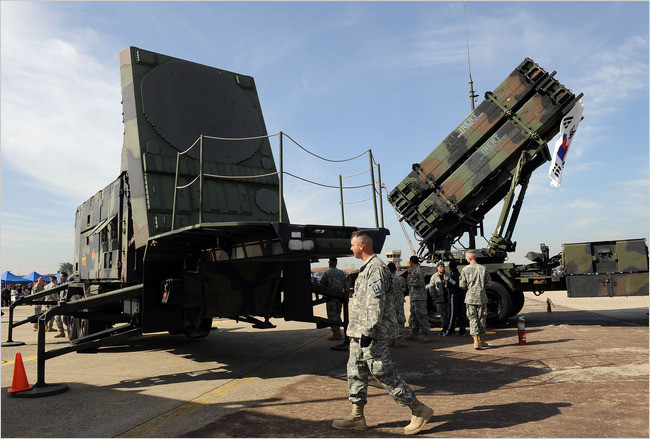The United Kingdom’s decision to suspend some arms exports to Israel has angered Israeli officials, confounded the U.K.'s chief rabbi — and even disappointed many human rights groups that say it doesn't go far enough.
It also marks a shift in British foreign policy, away from being lockstep with Washington when it comes to support for Israel.
After months of public protests at weapons factories across the country against arming Israel, U.K. Foreign Secretary David Lammy told Parliament on Monday, lawmakers' first day back from summer recess, that the government is suspending about 30 of its 350 arms export licenses for Israel.
He said a legal review found that “for certain U.K. arms exports to Israel there exists a clear risk that they might be used to commit or facilitate a serious violation of international humanitarian law.” Israel denies breaking any laws.
As the anniversary of the Oct. 7 Hamas-led attack approaches, and the death toll in Gaza mounts, the British government is one of several around the world that are expressing increasing alarm at how the war is being conducted.
The UK's Move Sparks Outrage
“Days after Hamas executed six Israeli hostages, the UK government suspended thirty arms licenses to Israel,” he wrote in a thread on X, adding that five British citizens are still being held hostage in Gaza. “With or without British arms, Israel will win this war and secure our common future.”
Former prime minister Boris Johnson accused the current leader, Keir Starmer, and Foreign Secretary David Lammy of “abandoning Israel,” while Britain’s chief rabbi, Ephraim Mirvis, said on X: “It beggars belief that the British government, a close strategic ally of Israel, has announced a partial suspension of arms licences.”
Why Critics Are Not Happy
While the move was welcomed by some, many human rights groups criticized the U.K. for not going far enough.
Oxfam’s chief executive, Halima Begum, welcomed Britain’s recognition “of the clear risk” that its arms were being used “in serious breaches” of international humanitarian law. But, she said in a statement Monday, “suspending just 30 licences out of 350, and crucially leaving loopholes for components in F-35 fighter jets that have been dropping 2,000-pound bombs on Palestinians for months now, is nowhere near adequate.”
Amnesty International said the decision was “too limited,” with its U.K. chief executive Sacha Deshmukh arguing in a statement that the exemption of the F-35 program “is a catastrophically bad decision for the future of arms control and misses a clear obligation to hold Israel accountable for its extensive war crimes and other violations.”
A Shift in British Policy
The U.K.'s decision marks a shift in its foreign policy, where it has long been aligned with the U.S. on Israel. This new center-left government, elected in July, has indicated that it might adopt a more independent approach.
The new prime minister, Keir Starmer, is a former human rights lawyer and prosecutor. He’s been under pressure from some of his own supporters to speak out about rising civilian death tolls in Gaza, and to condemn Israel more forcefully.
Within weeks of taking office, Starmer’s government said it was restarting funding for UNRWA, the main United Nations relief agency for the Palestinians.
Also in late July, Starmer’s government allowed a deadline to pass without filing any challenge to the International Criminal Court’s request for arrest warrants for Netanyahu and Gallant. With the U.S. not a signatory to that court, its ally Britain had pledged — under Starmer’s predecessor Rishi Sunak — to file legal paperwork challenging those warrants.
But in another break with the U.S., Starmer’s government said it would leave the matter up to the ICC, and not intervene.
Other Countries' Responses to the War
The UK is not alone in its scrutiny of arms exports to Israel. Several other countries have taken steps to restrict or suspend weapons sales to Israel, highlighting growing international concern about the conflict in Gaza.
Italy
Italy, the third-largest supplier of military equipment to Israel, announced in January that it would cease sending weapons to Israel. However, the government acknowledged that previously signed agreements were still being honored.
Spain
Spain declared in January that it had not sold arms to Israel since the start of the conflict in October 2023. In May, the government extended this by prohibiting ships carrying weapons to Israel from docking at Spanish ports. Madrid has been among the most vocal European critics of the Gaza offensive.
Canada
In March, Canada’s parliament, in a non-binding vote, agreed to halt future military sales to Israel. The foreign affairs minister, Mélanie Joly, told the Toronto Star at the time that arms shipments would cease: “It is a real thing,” she said.
Belgium
Local authorities in Belgium, a federal state, have restricted arms sales to Israel. The Belgian government has also advocated for an EU-wide ban.
The Netherlands
A Dutch court in February ruled that the government should stop supplying F35 fighter jet parts to Israel due to the clear risk of serious violations of international humanitarian law. However, the ruling did not include components sent to countries like the US that could then be delivered to Israel.
The US
The US, Israel’s largest military backer, provides an estimated 69% of its foreign-sourced weapons, according to the Stockholm International Peace Research Institute. While the exact details of arms sales remain undisclosed, the U.S. government has been a significant supporter of Israel, both financially and militarily.
Joe Biden has criticized Israel’s conduct in the conflict, calling its bombing campaign “indiscriminate”, but the president has refrained from halting the sale of US bombs. The administration suspended shipments of heavy, bunker-busting bombs to Israel in May, but resumed some deliveries in July.
Germany
Germany is Israel’s second-largest supplier of weapons, contributing approximately 30% of global arms exports to the country. The sales include portable anti-tank weapons and ammunition for automatic or semi-automatic firearms. Berlin considers its support for Israel a matter of “Staatsräson,” or reason of state, given its responsibility for the Holocaust.
Denmark
Denmark is a contributor to the F35 program and is currently facing a court application by several rights groups, including Amnesty International, seeking to block arms sales to Israel.
A Complex Situation
The UK's decision to restrict arms sales is a complex one, reflecting the difficult reality of the ongoing conflict in Gaza and the deep-rooted history of the Israeli-Palestinian conflict. While the move has been met with criticism from Israeli officials and human rights groups, it also highlights the growing pressure on the UK to adopt a more independent stance on the conflict and to consider the humanitarian implications of its military support. The future of the UK's role in the conflict remains uncertain, but it is clear that the world is watching closely as the situation unfolds.
What’s Next?
The situation in Gaza continues to deteriorate, with a recent report from the World Health Organization indicating that more than 40,000 people have been killed in the war, and the UN estimates that over 1.4 million Palestinians have been displaced. In the face of this humanitarian crisis, the UK's decision to suspend some arms sales to Israel, while it might not be enough for many, represents a significant shift in British foreign policy. It remains to be seen whether this move will lead to greater pressure on Israel to end its military offensive and to allow humanitarian aid into Gaza.
However, the decision is a reminder that the international community is increasingly unwilling to accept the status quo and that the UK is under pressure to take a more active role in promoting peace and justice in the Middle East.


















